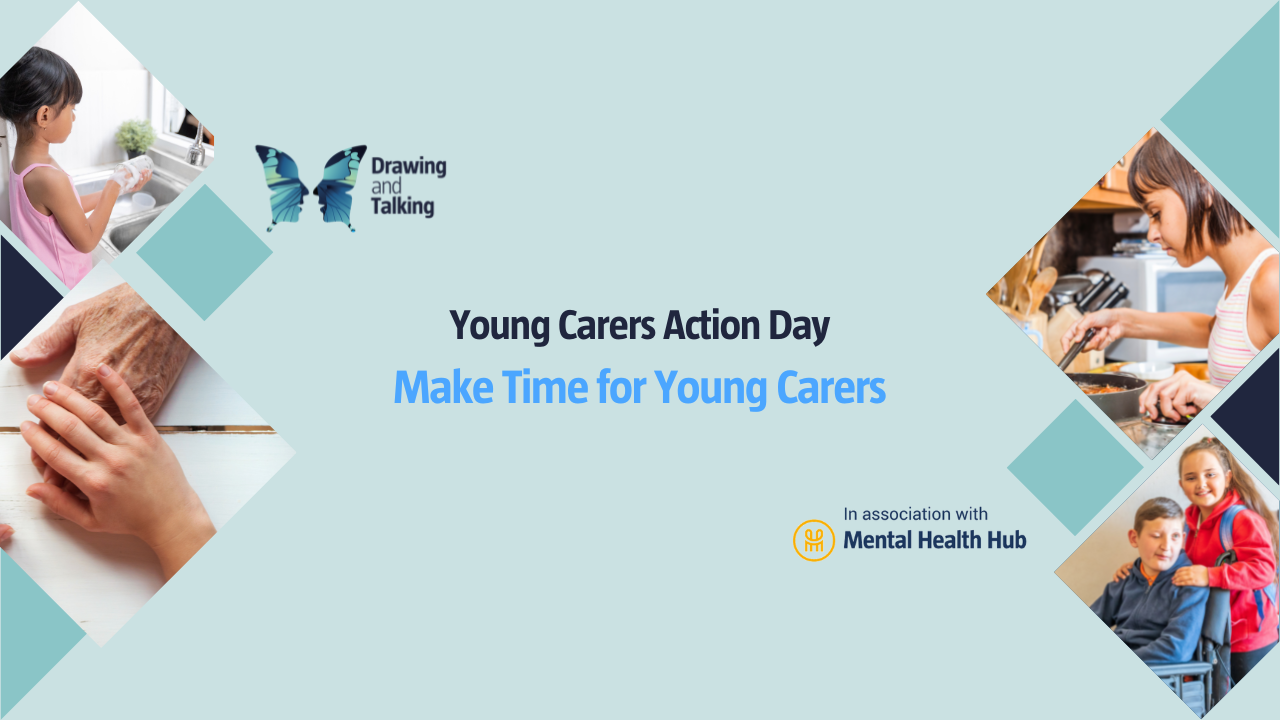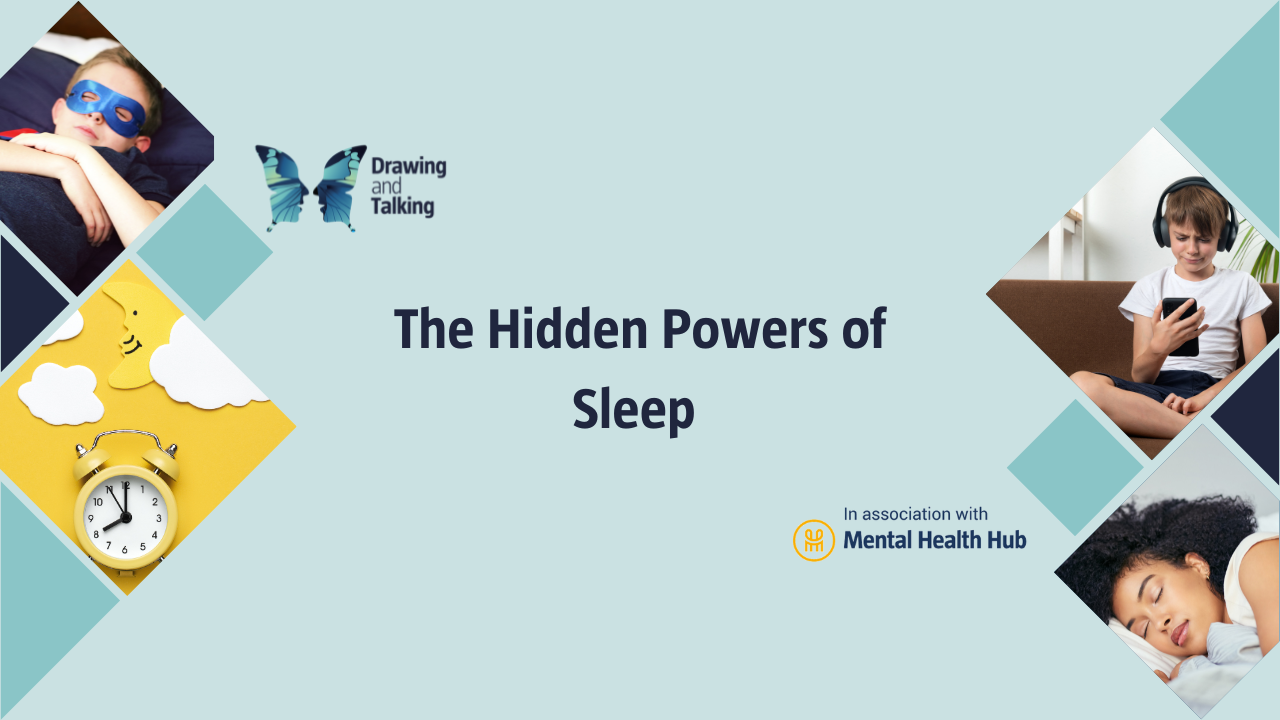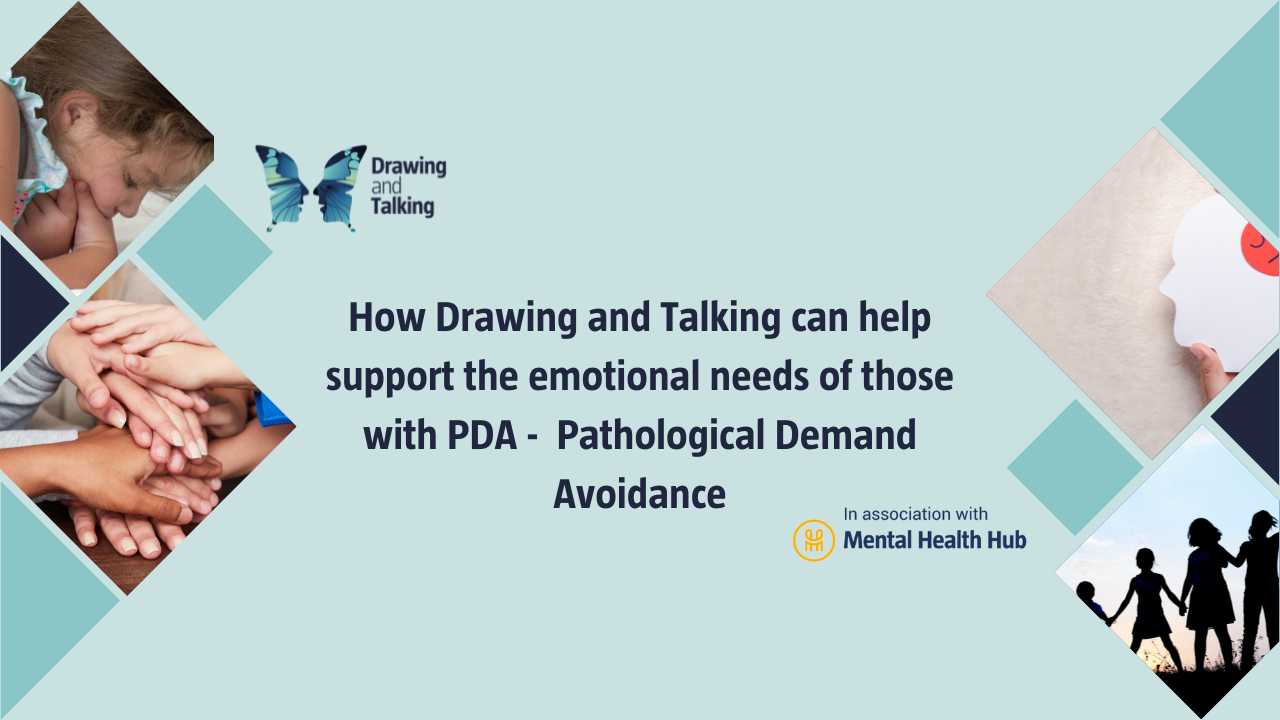
LIFELONG THERAPEUTIC LEARNING:
-
Learn more

Drawing and Talking allows individuals to discover and communicate emotions through a non-directed technique, setting it apart from existing solution-focused and cognitive-based therapies and interventions
Learn more
Creators of a global proactive intervention intended to complement rather than replace the work of Specialist Mental Health Services
Working with vulnerable
-
Courses
Drawing and Talking has proved invaluable with secondary aged students who find it difficult to talk about their emotions.

Our team's commitment to high quality services provides you with peace of mind.
Individuals
Creators of global proactive intervention intended to complement rather than replace the work of Specialist Mental Health Services.
Organisations
In-house training days are the most cost effective way to train groups of 20 or more staff in the Drawing and Talking therapeutic technique. We offer both Zoom and in-person options.
- Blog
-
Practitioners
In our 20-year history, we have built a community of 20,000 Drawing and Talking Practitioners.
Our Drawing and Talking Practitioners are committed to high-quality therapeutic support. Our Accredited Practitioners maintain an active Drawing and Talking Membership, which includes regular CPD and supervision and coaching. This ensures safe, reflective and effective practice.
- Contact us
- Book now
Young Carers Action Day (YCAD): Making Time for Young Carers

Young Carers Action Day takes place on Wednesday the 15th of March 2023, with the theme “Make Time for Young Carers”. This day is dedicated to raising awareness about the challenges that young and young adult carers face and the support they need. Young carers are individuals under 18 who provide care and support to a relative with a disability, illness, mental health condition, or substance abuse problem. Young carers can support people in a physical and emotional capacity, that can be draining, and may have a negative impact on their mental health.
According to a report by the Children Commissioners in the UK, 66% of young carers reported overall happiness with life, but were also more likely to experience unhappiness in several aspects of their lives compared to non-carer children. This highlights the complex experiences of young carers who may struggle with their caring responsibilities, while trying to maintain a sense of normalcy and happiness in their lives.
How being a young carer can impact their ability to form healthy attachments
The challenges faced by young carers can impact their ability to form healthy attachments. This is not to say that all young carers do not have healthy attachment styles, but they may struggle to form secure attachments. This can occur if their primary caregivers are preoccupied with caring for their siblings, or if the young carer is needed to provide support to their primary caregivers. As a result, the young carer may receive inconsistent care and affection from their primary caregivers, leading to an insecure attachment style.
Additionally, young carers may avoid forming attachments with others, as a coping mechanism, if they are overwhelmed with stress and the emotional burden of their caring responsibilities. Furthermore, some young carers experience social isolation due to their responsibilities, which can result in missing crucial opportunities to practice forming and maintaining healthy relationships.
Supporting young carers through therapeutic interventions
One way to help young carers is through the Drawing and Talking therapeutic intervention. This method provides a safe and person-led environment for young carers to express their thoughts and feelings indirectly, allowing them to process their traumatic experiences through their subconscious mind, experience forming a healthy attachment, survive the loss of an attachment, and improve emotional resilience.
Drawing and talking is a time-limited intervention, that includes meeting with them at the same time and same place for 30 minutes, once a week for twelve weeks.
Making time for young carers
As this article highlights, the complexities around being a young carer are huge. From potential attachment issues, increased responsibility at an early age, limited play and social opportunities with peers, and strained family dynamics. If our young carers are not given the right support and interventions, in time their role could really affect their mental health and wellbeing and then in turn have a detrimental effect on their life choices.
https://www.childrenscommissioner.gov.uk/2022/03/16/the-big-ask-voices-shining-a-light-on-young-carers/
Latest news
March 6, 2023


